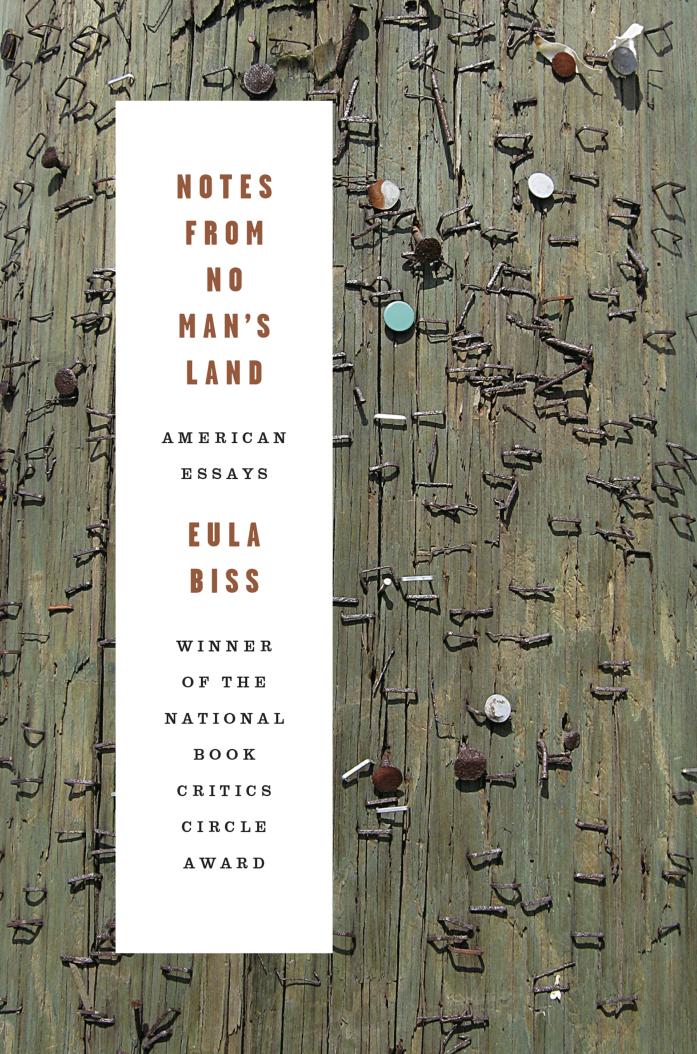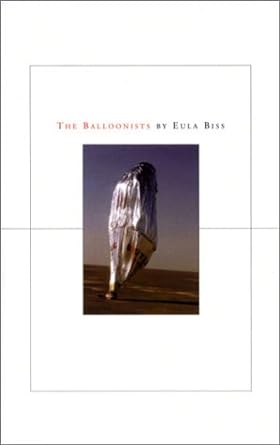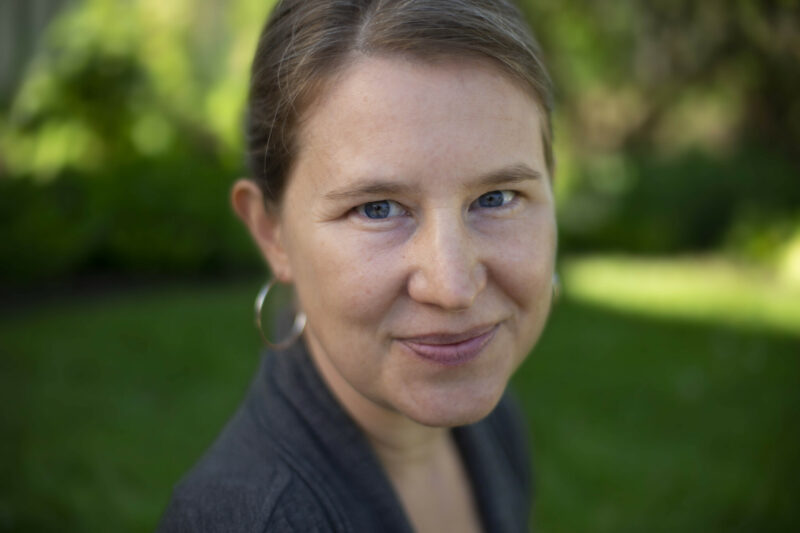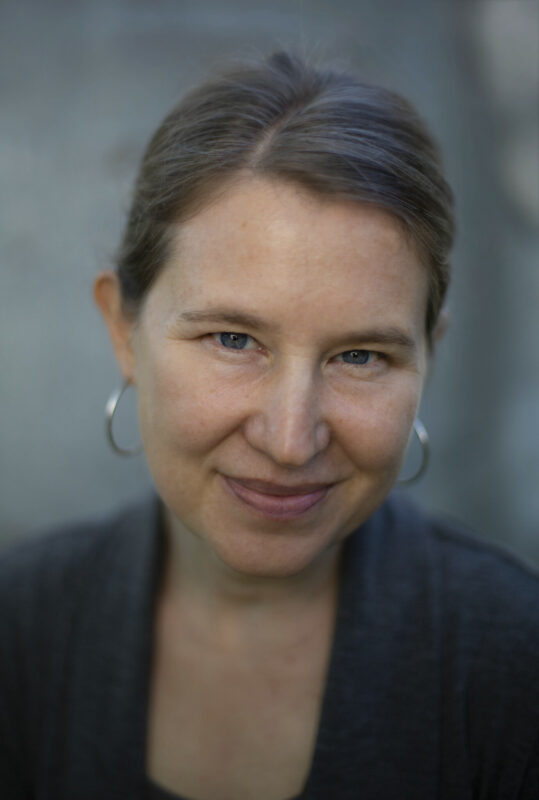
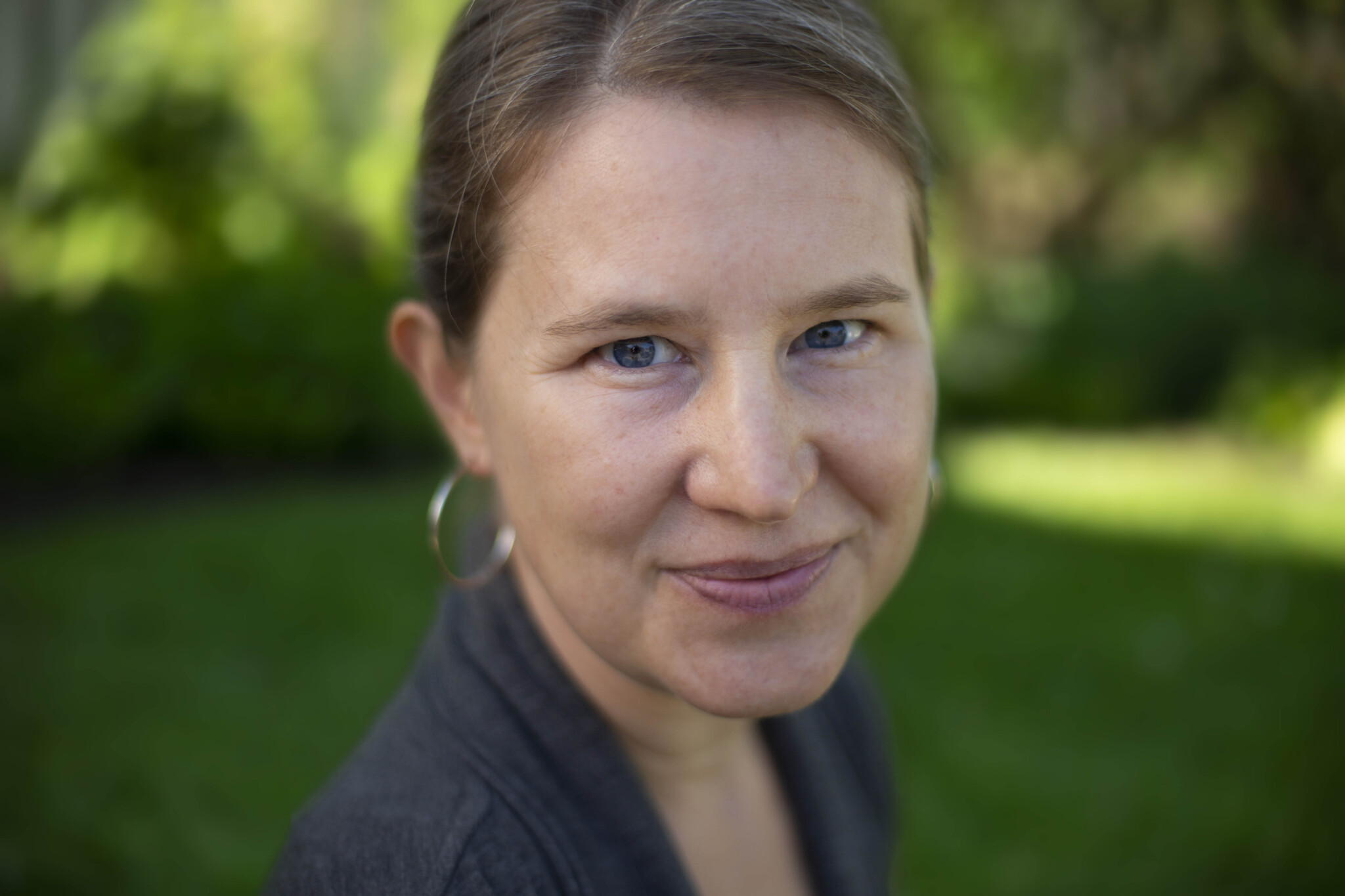
Eula Biss
NYT Bestselling Author
National Book Critics Circle Award
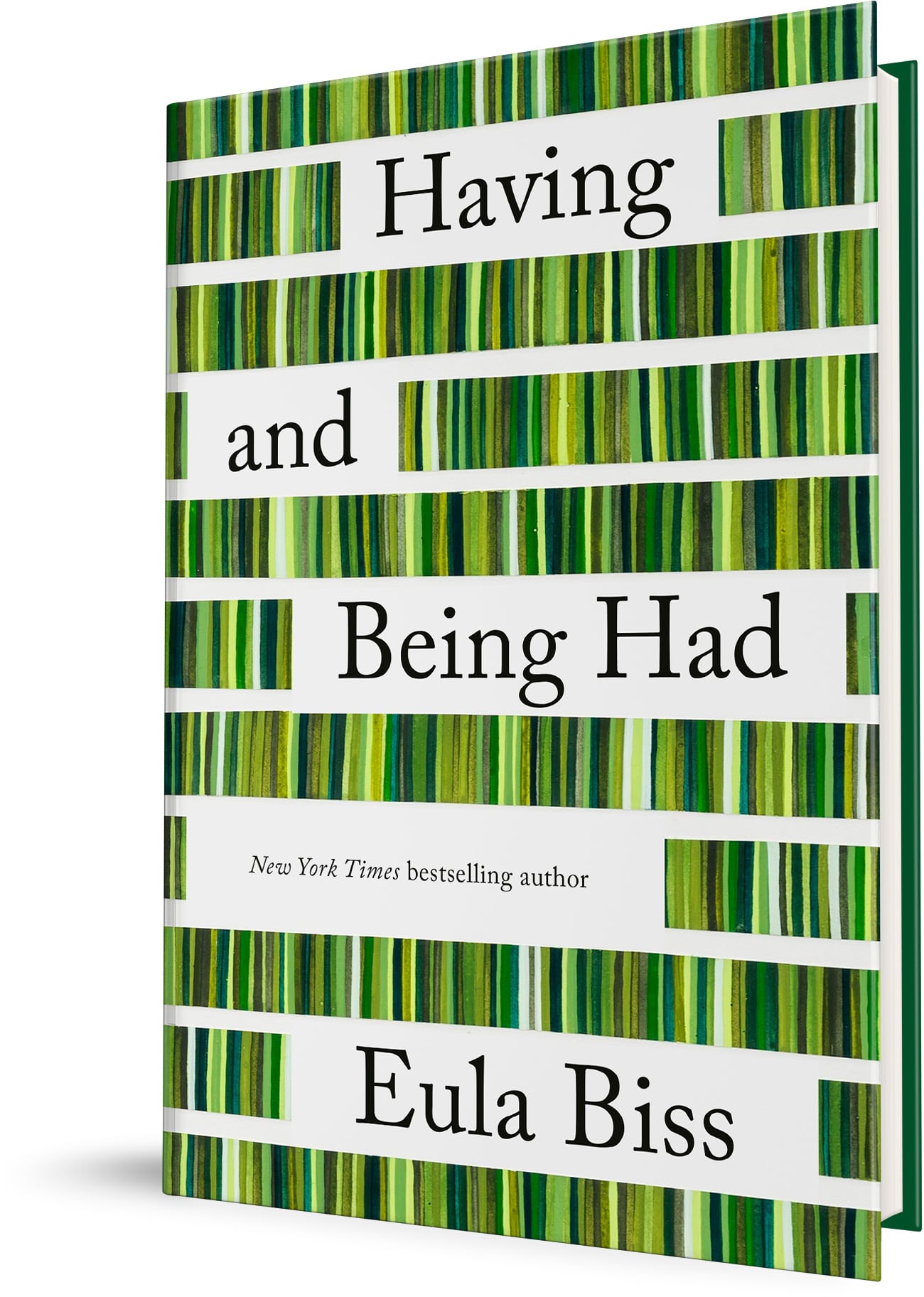
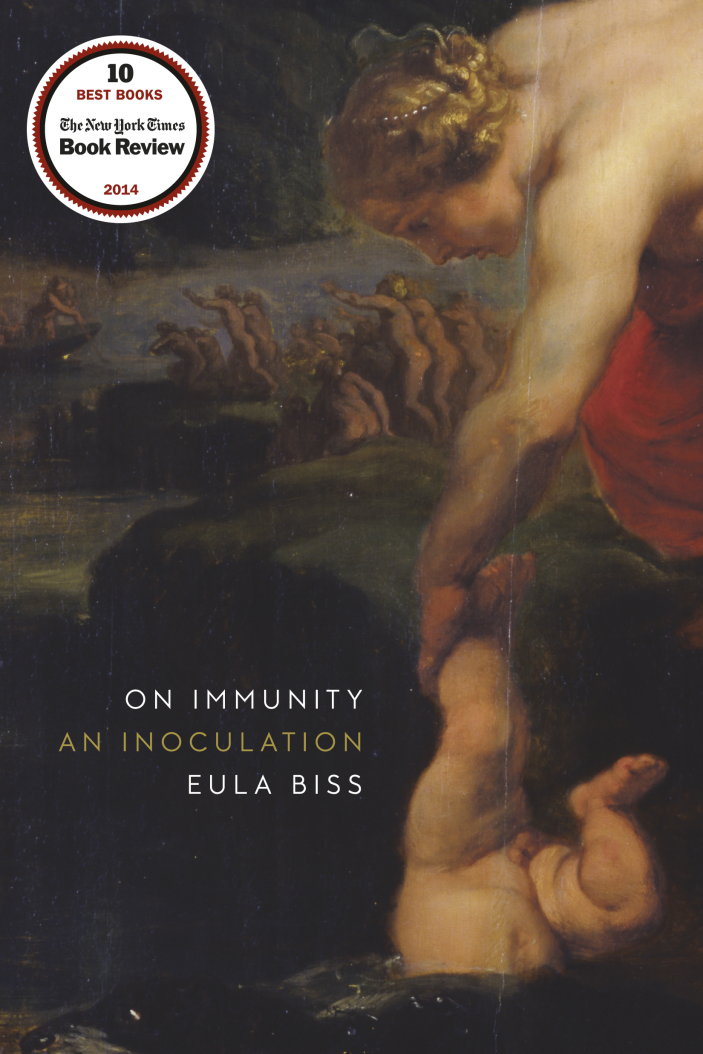
Readings &
Lecture Topics
- False Starts & Calamities: The Art of Practice
- The Architecture of the Essay
- The Art of the First Person
- Research and the Personal Essay
- Ownership: Land and Property Politics
- Vaccines and Vampires
- White Debt
Biography
“Eula Biss rather than leading through narrative, turns individual words and phrases, like capitalism, consumers, great America, husbandry, art, and work, into fields of inquiry in order to frame a life. With astute consideration, this expansive and intimate accumulation asks the questions that touch all our lives.” –Claudia Rankine
“Biss has been compared to Joan Didion, and the reasons are obvious. Like Didion she has a gift for coming at her subjects from all sides, in unsentimental, lyrical prose.” –Meghan O’Rourke
“She’s a poet, essayist and a class spy…believer and apostate, moth and flame.”–New York Times
Eula Biss is the author of four books, including Having and Being Had (Riverhead Books, 2020), which was a New York Times Editor’s Choice, and named a Best Book of the Year by Time and NPR. Alexander Chee praised it as “a brilliant, lacerating re-examination of our relationship to what we own and why, and who in turn might own us in ways we didn’t know we consented to—what could be more necessary now?”
Her previous book, On Immunity: An Inoculation (Graywolf Press, 2014) was a New York Times bestseller, and was named one of the Ten Best Books of 2014 by the New York Times Book Review, New York Magazine, Chicago Tribune, Publisher’s Weekly, the Los Angeles Times and more. Other books are Notes from No Man’s Land (Graywolf Press, 2009), winner of the 2010 National Book Critics Circle Award for criticism and the Graywolf Press Nonfiction Prize, and The Balloonists (Hanging Loose Press, 2002). As a 2023 National Fellow at New America, she is at work on a collection of essays about how private property has shaped our world.
In a conversation with Hazlitt, Biss was asked about being an artist in a capitalist economy and how art making can look like doing nothing: “It’s one of the problems for an artist within this particular economic system: our work often doesn’t look like work and it’s not compensated like other work. Its value isn’t measured in the same way as other work. I think that can have a profound psychological effect on an artist. It’s one of the things that can lead to the kind of despair that I think is unique to an artist living within this particular economic system, a despair that comes from dedicating your best energies into something that is routinely undervalued and not seen or understood as work.”
Biss’s books have been selected for common reads at Trinity University, Washington University, Seattle University, the University of Kansas, the University of Cincinnati, and Western Michigan School of Medicine, among others. Her work has been translated into over ten languages and has been recognized by a Guggenheim Fellowship, a National Endowment for the Arts Literature Fellowship, a Howard Foundation Fellowship, a Rona Jaffe Writers’ Award, a 21st Century Award from the Chicago Public Library, and a Pushcart Prize. Her essays and poems have recently appeared in the New Yorker, the Guardian, the Times Literary Supplement, The Believer, Harper’s, and the New York Times Magazine. Biss is a founding editor of Essay Press and a member of the Penny Collective.
Biss holds an MFA in nonfiction writing from the University of Iowa and taught writing at Northwestern University for fifteen years. She currently teaches nonfiction for the Bennington Writing Seminars. She is the Joan Leiman Jacobson Nonfiction Writer in Residence at Smith College.
Short Bio
Eula Biss is the author of four books: Having and Being Had (2020), On Immunity (2014), Notes from No Man’s Land (2009), and The Balloonists (2002). Her work has been translated into a dozen languages and has been recognized by a National Book Critics Circle Award, a Guggenheim Fellowship, and a 21st Century Award from the Chicago Public Library. As a 2023 National Fellow at New America, she is at work on a collection of essays about how private property has shaped our world. For the past twenty years, Biss has taught writing in large lecture halls and small community bookstores, at public elementary schools and private universities. She developed a commitment to progressive education at Hampshire College, where she studied creative writing and visual art before earning an MFA in nonfiction writing from the University of Iowa. She currently teaches nonfiction for the Bennington Writing Seminars. She is a founding editor of Essay Press and a member of the Penny Collective. She lives outside of Chicago.
Visit Author WebsiteVideos
Publications
Having and Being Had
Essay, 2020
“My adult life can be divided into two distinct parts,” Eula Biss writes, “the time before I owned a washing machine and the time after.” Having just purchased her first home, the poet and essayist now embarks on a provocative exploration of the value system she has bought into. Through a series of engaging exchanges—in libraries and laundromats, over barstools and backyard fences—she examines our assumptions about class and property and the ways we internalize the demands of capitalism. Described by the New York Times as a writer who “advances from all sides, like a chess player,” Biss offers an uncommonly immersive and deeply revealing new portrait of work and luxury, of accumulation and consumption, of the value of time and how we spend it. Ranging from IKEA to Beyoncé to Pokemon, Biss asks, of both herself and her class, “In what have we invested?”
On Immunity
Essay, 2014
In this bold, fascinating book, Eula Biss addresses our fear of the government, the medical establishment, and what may be in our children’s air, food, mattresses, medicines, and vaccines. Reflecting on her own experience as a new mother, she suggests that we cannot immunize our children, or ourselves, against the world. As she explores the metaphors surrounding immunity, Biss extends her conversations with other mothers to meditations on the myth of Achilles, Voltaire’s Candide, Bram Stoker’s Dracula, Rachel Carson’s Silent Spring, Susan Sontag’s AIDS and Its Metaphors, and beyond. On Immunity is an inoculation against our fear and a moving account of how we are all interconnected—our bodies and our fates.
Notes from No Man's Land
Essay, 2010
Acclaimed for its frank and fascinating investigation of racial identity, and reissued on its ten-year anniversary, Notes from No Man’s Land begins with a series of lynchings, ends with a list of apologies, and in an unsettling new coda revisits a litany of murders that no one seems capable of solving. Eula Biss explores race in America through the experiences chronicled in these essays—teaching in a Harlem school on the morning of 9/11, reporting from an African American newspaper in San Diego, watching the aftermath of Hurricane Katrina from a college town in Iowa, and rereading Laura Ingalls Wilder in the Rogers Park neighborhood of Chicago. What she reveals is how families, schools, communities, and our country participate in preserving white privilege. Notes from No Man’s Land is an essential portrait of America that established Biss as one of the most distinctive and inventive essayists of our time.
The Ballonists
Poetry, 2002
A lyric meditation on love and the limits of romance, The Balloonists is a refusal of marriage. Told through metaphor and intimate experience, this genre-defying work chronicles a young woman’s attempt to live a new story.
Articles & Audio
Read What’s In Print
• Imposing the Life on the System: A Conversation with Eula Biss – The Rumpus
• Racism, Contagion, and the Dangers We Pose to One Another – The New Yorker
• Eula Biss On Taboos, Capitalism, and the Meaning of Work – Jezebel
• Review Having and Being Had by Eula Biss: Saturated in Capitalism – The Guardian
• Vaccine as Metaphor: On Immunity – Slate
Listen to Audio
Selected Writings
• Read “The Theft of the Commons” – The New Yorker
• Read “Back to Buxton” – Literary Hub
Isn’t It Good? (read a excerpt from Having and Being Had here)
We’re on our way home from a furniture store, again. What does it say about capitalism, John asks, that we have money and want to spend it but we can’t find anything worth buying? We almost bought something called a credenza, but then John opened the drawers and discovered that it wasn’t made to last.
I think there are limits, I say, to what mass production can produce.
We just bought a house but we don’t have furniture yet. We’ve been eating on our back stoop for three months. Last week a Mexican woman with four children rang our doorbell and asked if our front room was for rent. I’m sorry, I said awkwardly, we live here. She was confused. But, she said, it’s empty.
It is empty. I hang curtains to hide the emptiness, but it remains empty. There wasn’t any furniture in the house where I grew up until a German cabinet maker moved in with us. He arrived in a truck so heavy that it made a dent in the driveway. He filled our dining room with his furniture and then he made tiny replicas of that furniture with the machines he brought in the truck. I still have the tiny corner cabinet with lattice doors, the tiny hutch with brass knobs, and the tiny dining room table with expertly turned legs. They’re in the basement, wrapped in newspaper. The tiny dresser sits atop my dresser, which is from IKEA.
The apartment we just left was furnished with shelves that John made out of cheap pine. They’re in the basement now, reduced to lumber. The ammunition box that I found on the curb and made into a coffee table is in the backyard, planted full of marigolds. I hate furniture, my father once murmured. He had just visited a warehouse full of furniture made out of unfinished pine. This was after the cabinet maker went to a nursing home and his furniture went away too. As a child, I burned a hole in the dining room table. The cabinet maker, who smoked a pipe, supplied me with matches. I loved to burn things, but I felt remorse over the table, which I also loved.
The lyric I burned a hole in the dining room table is tethered, in my mind, to the liner notes of a Billie Holiday album that I borrowed from the library in college. She was singing songs written by someone else, the notes explained, but she rewrote them with the way she sang. Her delivery transformed a banal portrait of moneyed life into a wry critique of that moneyed life.

